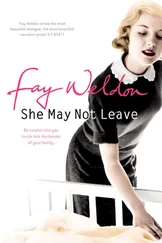How hard it was to rid herself of the feeling that Barley was somehow still on her side. That when the chips were down he would leave this room with her, not Doris, and the joke would be over. And then it would be her turn to play, and perhaps she would toss her head and say no! who? you? who are you to me? and go home with someone else. Or perhaps not. Barley had been to visit her in prison, but she had refused to see him. Some few powers prisoners do have, and this was one of them. Simply to snub. Except as the long hours dragged by, locked in her cell – so many staff were engaged in the attempt to forestall the passage of drugs by kiss, or embrace; to dampen down hysteria, or cart back the screaming, and the distracted and the lost-it to their quarters, that those without visitors must stay locked up – the spasm of pride had seemed mere folly. And now! Locked in her head, her body, her mouth smiling; while the few people who remembered she was there at all turned to see how Grace once Salt, now Grace McNab, reacted to the entrance of the noted celebrity lovers.
They mean to humiliate me with their happiness, was what she thought: Barley so smooth and well-suited, his teeth newly remade: Doris in the fabulous flame-coloured dress and the Bulgari necklace with the burnished coins set in heavy gold.
Only two years back and Barley had offered to buy Gracie, his then wife, just such a gift for her birthday, but she’d refused, having rung the shop to find out how much it cost. He’d taken it as a snub: he felt her resistance to what he was, obdurate in her preference of the stony past they had once shared over the soft comfort of the uneasy present. Somewhere she was still Grace McNab, not Gracie Salt, she was her parents’ daughter. Dr McNab the Harley Street surgeon was well enough off, but what was left at lunch would be eaten for dinner: waste not want not filled the air as yesterday’s cold sprouts were fried for breakfast. The faint smell of antiseptic from the surgery below, the bleakness of the high, cold waiting rooms with their polished furniture and harsh red Persian rugs, their neat copies of Country Life; the stoicism of dull patients, their pain and dereliction of the body so bravely borne – these things she took to be ordinary; the base from which all other conditions departed.
Forever she tried to re-create her childhood home: forever Barley tried to thwart her. Barley was in flight from the poverty of his; she longed to return to the careful respectability of hers. So much Dr Jamie Doom had taught her. It was her role to thwart Barley’s wishes. She tried not to but she couldn’t help it. The more Barley craved luxury and extravagance the more uneasy she felt; the more, to save his very soul, she would insist on cooking for his smart dinner guests herself and not get in expensive caterers – what was an Aga for, but to bake her own cheese straws for parties – murmuring that surely everyone appreciated home cooked food? And he’d grow pink and desperate in his new Jermyn Street finery, and she’d be in a dress from Marks and Sparks, Marble Arch. Of course he’d got fed up with her.
She should have done so much so differently, but how could she? She was the person she was. Other women seemed able to turn themselves into something they had not been born to – Doris Dubois had started life as Doris Zoac, and had honed herself into new shape – but that skill was beyond Grace. She had once turned from Gracie McNab to Grace Salt, and now she was turning back perforce and that was bad enough.
The money that should have been Carmichael’s was going round Doris’s neck and on a painting that was pleasant enough, but if the painter had only been paid £300 a week for painting it, as he’d assured her, why should it fetch so much? It didn’t make sense.
‘Up we go!’ enthused the auctioneer whose face everyone knew but whose name no-one could remember. ‘Any advance on eighteen thousand?’
‘Twenty,’ Grace said, before she could stop herself, and then felt insecure because all faces turned towards her and so she blushed.
Walter Wells was gratified. Grace Salt wanted to buy his portrait of Lady Juliet, and for such a sum! It occurred to him that she must have money to spare and that was no bad thing because he was certainly short of it.
Lady Juliet had jumped up and down with pleasure when Barley Salt came in and said ‘Now we’ll see some real action. But if they meant to come why didn’t they say so, and I wouldn’t have asked Grace. How embarrassing!’ Apparently the telly diva Doris Dubois – for Walter recognised her: her programme which had started with a book bias was increasingly casting its eye over the visual arts – was his new wife in place of Grace. He could see the attraction – he would quite like to paint her, he thought: the definitions of her outline were interestingly hard, sharp and clear: most people tended towards such fuzziness of being it was hard to tell where the edges were. His attention drifted towards Barley Salt, who had come into the bidding as well; he and the wonderfully louche South African, Billyboy Justice, were fighting it out.
‘Twenty thousand,’ said Grace. Walter turned to look at her; blushing, he saw, from nerves?
‘How disgusting,’ said Doris Dubois, rather loud and clear. ‘That must be a hot flush. Can’t she even take hormones?’
The bidding stopped, as if having startled itself out of existence.
The hammer fell.
‘Sold to Mrs Salt,’ said the actor-auctioneer, who had dined at the Manor House once or twice in the old days, and clicked that he recognised his one-time hostess. He remembered her with affection. She would serve prawn cocktails followed with steak-and-kidney pie when you were grimly resigned to another dose of sun-dried tomatoes, rocket salad, and seared tuna.
‘I’m Mrs Salt,’ said Doris Dubois.
‘My name is Grace McNab,’ said Grace, firmly.
‘I’m sorry,’ said the actor-auctioneer, confused, but everyone makes mistakes, and it wasn’t as if he was being paid for this.
‘Sold to the lady in the red velvet dress.’
Walter Wells heard Barley Salt say to Grace, ‘You can’t afford it, Gracie. You’ll have to touch your capital. Let me do it.’ He heard Grace say, ‘No. If I have to live my own life not ours I’ll live it my way. Go away.’ Walter knew then he would have a hard time wresting her emotions away from Barley and towards himself; but he also knew he meant to do it. ‘Please can we go now, Barley,’ said Doris Dubois. ‘I really can’t waste any more time.’
‘Why, Doris,’ said Grace – McNab or Salt? – sweetly, ‘the price tag is still on your dress.’ And so it was, saw Walter, a much bar-coded card hanging out the almost-collar at the back of the orange silk. Doris was a rose unfurled and bright, not blown, like Grace: the kind his mother sometimes bought at Woolworth’s. ‘To add colour,’ she’d say. ‘Cheap but cheerful – they’ve had such a struggle against odds to live, they sometimes do it very well.’
Конец ознакомительного фрагмента.
Текст предоставлен ООО «ЛитРес».
Прочитайте эту книгу целиком, купив полную легальную версию на ЛитРес.
Безопасно оплатить книгу можно банковской картой Visa, MasterCard, Maestro, со счета мобильного телефона, с платежного терминала, в салоне МТС или Связной, через PayPal, WebMoney, Яндекс.Деньги, QIWI Кошелек, бонусными картами или другим удобным Вам способом.












